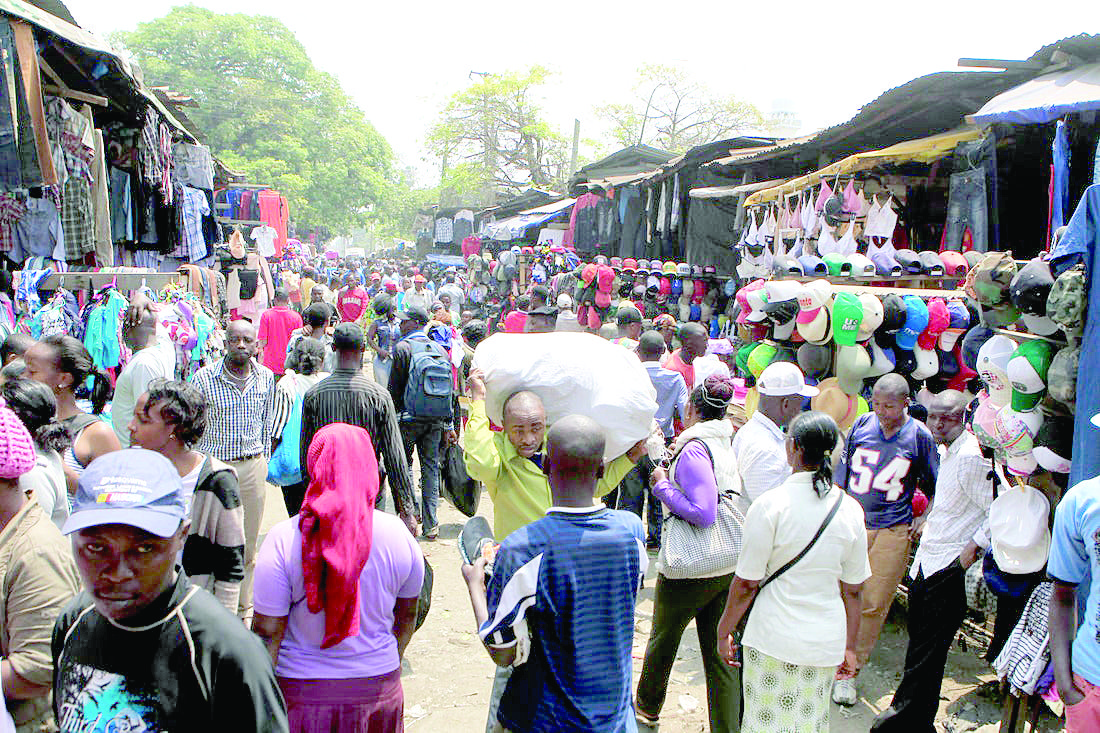Data collection key to solving world population problems

As World Population Day is marked today, people around the globe have been reminded of the need to be counted as a means to end inequality among societies.
Nations have been urged to invest in data collection of their citizens so that they can understand the problems they face, create solutions and drive development.
“For humanity to progress, people must be counted, wherever they are and whoever they are – in all their diversity. To end inequality, to find and grow peace and prosperity, to weave more threads of hope, the world needs to do more for inclusion,” United Nations Population Fund (UNFPA) Executive Director Natalia Kanem said.
She added: “To go uncounted is to be made invisible and, as a result, left unserved. This contributes to a 10-year-old girl being left with no health care when she is displaced during conflict. Or to an older woman with a disability having no safety net when a crisis strikes. It leaves a newborn in a remote indigenous community without the passport to protection that birth registration confers.”
Great strides
Kanem noted that over the last three decades, heeding the call of the 1994 International Conference on Population and Development, societies around the world have made tremendous strides in improving population data gathering, analysis and use.
“New population numbers, disaggregated by age, ethnicity, gender and other factors, reflect the diversity of our societies. To take just one example, approximately two thirds of countries now include questions on disability in their censuses,” she said in a statement.
The UNFPA boss attributed the advancement in data collection to improved delivery of health care to people all over the world. This has resulted in significant breakthroughs in sexual and reproductive health and the ability to exercise rights and choices.
Granula measurement
Additionally, she stated that new technologies are enabling more granular and timely measurement of more people’s experiences than ever before.
However, the global population agency raised concern that the most marginalized communities are still underrepresented in data, which has caused far-reaching consequences on their lives and well-being.
Recent UNFPA research reveals acute and growing inequalities, within and among countries.
“In too many places, for example, women from racial and ethnic minority groups are nearly invisible in statistics tracking maternal deaths. This is one reason why health and social services overlook their needs, and a far greater share of these women die giving birth,” Kanem explained.
She went on: “World Population Day 2024 is a moment to ask who is still going uncounted and why – and what this costs individuals, societies and our global efforts to leave no one behind. It is also a moment for all of us to commit to doing more to ensure that our data systems capture the full range of human diversity so that everyone is seen, can exercise their human rights and can reach their full potential.”
United Nations Secretary General António Guterres said that the Population Day coincides with 13th anniversary of the International Conference on Population and Development (ICPD) Programme of Action which has been instrumental in addressing reproductive health among women.
“Central to the ICPD Programme of Action is the recognition that women’s sexual and reproductive health and reproductive rights are cornerstones of sustainable development,” Guterres said. The SG noted that since it was adopted, more women have access to modern contraception and maternal deaths have fallen by 34 per cent since 2000.
However, Guterres said that progress has been unequal and unsteady, adding that around 800 women die every day in pregnancy and childbirth – the vast majority in developing countries.
“In some places, legislative advances in tackling vital issues such as female genital mutilation risk going into reverse,” he emphasized.
As the theme of this year’s World Population Day reminds us, investing in data collection is important to understanding problems, tailoring solutions, and driving progress. So is finance. I urge countries to make the most of the Summit of the Future this year to unleash affordable capital for sustainable development.
According to UN statistics, the global human population reached 8 billion in mid-November 2022 from an estimated 2.5 billion people in 1950, adding 1 billion people since 2010 and 2 billion since 1998.
The world’s population is expected to increase by nearly 2 billion in the next 30 years, from the current 8 billion to 9.7 billion in 2050 and could peak at nearly 10.4 billion in the mid-2080s.







